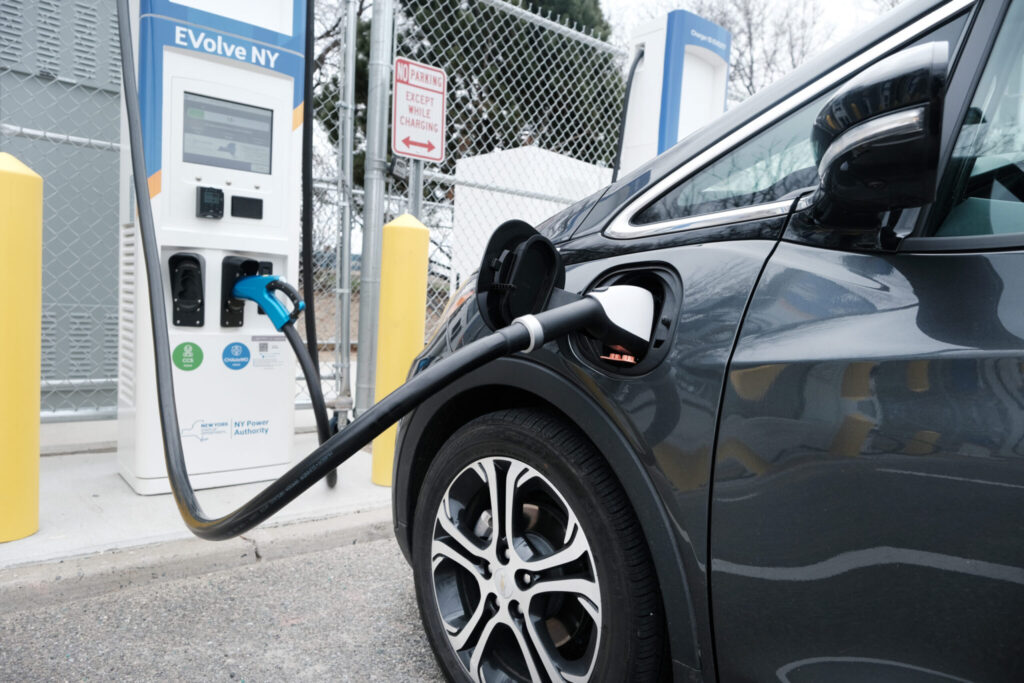Maryland’s Ambitious Electric Vehicle Goals Face New Challenges Under Trump Administration
In a significant policy shift, top officials from the Moore administration reaffirmed their commitment to expanding electric vehicle (EV) sales in Maryland, even as new federal directives under President Donald Trump present fresh obstacles. During a briefing with state lawmakers, they outlined the hurdles ahead, coinciding with Trump’s recent executive order that aims to dismantle several existing EV incentives.
The executive order signed by Trump on Monday seeks to reverse key mandates established by former President Joe Biden. Maryland Environment Secretary Serena McIlwain described the order as a significant challenge, dubbing it “the big elephant in this room.” This order includes:
- Rolling back the policy for EVs to constitute 50% of new car sales by 2030;
- Blocking federal grants for EV chargers;
- Eliminating federal tax credits of up to $7,500 for EV purchases;
- Revoking California’s waiver to ban gas-only car sales by 2035.
Maryland, aligning with California’s stringent emissions standards, faces a direct impact from these federal changes. The state’s lawmakers, including Sen. Brian J. Feldman, emphasized the importance of the discussion, which also featured input from industry experts and a former California regulator.
Despite the challenges, Maryland’s EV market shows positive trends, with registered electric vehicles rising to 126,966 by December 2024. Joe McAndrew of the Maryland Department of Transportation noted the continuous growth in EV registration, a significant increase from past years.
Yet, the state’s path is complicated by the potential withdrawal of federal support, which could hinder the expansion of EV infrastructure. The current 1,600 public charging stations fall short of the 16,000 needed to meet future demands, a gap that might widen if Trump’s order remains effective.
Some industry voices, like Josh Fisher from the Alliance for Automotive Innovation, caution against overly rapid EV mandates, suggesting that regulation could outpace consumer readiness. Meanwhile, Maryland Autodealers Association President Peter Kitzmiller highlighted the difficulty for dealers in selling EVs and the financial burden of adapting to new infrastructure.
The political landscape in Maryland could further complicate these efforts, as Republican lawmakers prepare to challenge the state’s adherence to California’s standards. A previous attempt to decouple from these standards was unsuccessful, but renewed efforts are anticipated.
As the debate continues, Maryland’s officials, including McIlwain, stress that the transition to EVs will be gradual, allowing for the coexistence of gas-powered vehicles for decades. The state also provides a formula for auto dealers to adjust their EV sales targets through pollution credits.
Trump’s policy changes are framed as a bid to preserve auto industry jobs, with a report from the America First Policy Institute estimating significant job losses under Biden’s EV policies. However, industry commitment to electrification remains strong, as highlighted by Cox Automotive’s report noting a rise in U.S. EV sales and projecting continued growth.
Despite the uncertainty, Craig Segall, a former official from California’s Air Resources Board, advised Maryland lawmakers to remain flexible and innovative amid the transition. Del. Marc Korman acknowledged the limited options available under current federal and state dynamics, emphasizing the complexity of navigating Maryland’s future EV strategy.
Original Story at marylandmatters.org
